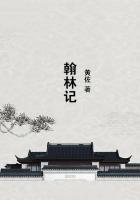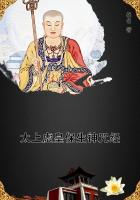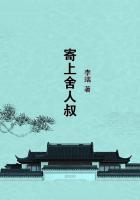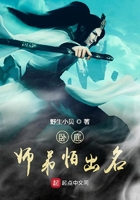To her poetical life, was added a moral life. She always had a romance going on, to which she was constantly adding another chapter, like so many links in a never-ending chain. She now gave a hero to her romance, a hero whose name was Corambe. He was her ideal, a man whom she had made her god. Whilst blood was flowing freely on the altars of barbarous gods, on Corambe's altar life and liberty were given to a whole crowd of captive creatures, to a swallow, to a robin-redbreast, and even to a sparrow. We see already in all this her tendency to put moral intentions into her romantic stories, to arrange her adventures in such a way that they should serve as examples for ****** mankind better. These were the novels, with a purpose, of her twelfth year.
Let us now study a striking contrast, by way of observing the first signs of vocation in two totally different novelists.
In the beginning of _Facino Cane_, Balzac tells us an incident of the time when, as an aspiring writer, he lived in his attic in the Rue Lesdiguieres. One evening, on coming out of the theatre, he amused himself with following a working-man and his wife from the Boulevard du Pontaux-Choux to the Boulevard Beaumarchais.
He listened to them as they talked of the piece they had just seen.
They then discussed their business matters, and afterwards house and family affairs. "While listening to this couple," says Balzac, "I entered into their life. I could feel their clothes on my back and, I was walking in their shabby boots."This is the novelist of the objective school, the one who comes out of himself, who ceases to be himself and becomes another person.
Instead of this exterior world, to which Balzac adapts himself, Aurore talks to us of an inner world, emanating from her own fancy, the reflection of her own imagination, the echo of her own heart, which is really herself. This explains the difference between Balzac's impersonal novel and George Sand's personal novel.
It is just the difference between realistic art, which gives way to the object, and idealistic art, which transforms this according to its own will and pleasure.
Up to this time George Sand's ideas had not been put on to paper.
Both _Corambe_ and the stories composed between four chairs were merely fancies of a child's mind. Aurore soon began to write, though.
She had composed two novels while in the convent, one of which was religious and the other a pastoral story. She was wise enough to tear them both up. On leaving the convent she wrote another novel for Rene' de Villeneuve, and this shared the same fate. In 1827, she wrote her _Voyage en Auvergne_, and in 1829, another novel.
In her _Histoire de ma vie_ she says of this: "After reading it, I was convinced that it was of no value, but at the same time I was sure I could write a better one. . . . I saw that I could write quickly and easily, and without feeling any fatigue. The ideas that were lying dormant in my mind were quickened and became connected, by my deductions, as I wrote. With my meditative life, I had observed a great deal, and had understood the various characters which Fate had put in my way, so that I really knew enough of human nature to be able to depict it." She now had that facility, that abundance of matter and that nonchalance which were such characteristic features of her writing.
When George Sand began to publish, she had already written a great deal.
Her literary formation was complete. We notice this same thing whenever we study the early work of a writer. Genius is revealed to us, perhaps, with a sudden flash, but it has been ****** its way for a long time underground, so that what we take for a spontaneous burst of genius is nothing but the final effort of a sap which has been slowly accumulating and which from henceforth is all-powerful.
George Sand had to go through the inevitable period of feeling her way. We are glad to think that the first book she published was not written by herself alone, so that the responsibility of that execrable novel does not lie solely with her.
On the 9th of March, 1831, George Sand wrote to Boucoiran as follows:
"Monstrosities are in vogue, so we must invent monstrosities.
I am bringing forth a very pleasant one just at present. . . ."This was the novel written in collaboration with Sandeau which appeared under the signature of Jules Sand towards the end of 1831.
It was entitled, _Rose et Blanche, ou la Comedienne et la Religieuse_.
It begins by a scene in a coach, rather like certain novels by Balzac, but accompanied by insignificant details in the worst taste imaginable.
Two girls are travelling in the same coach. Rose is a young comedian, and Sister Blanche is about to become a nun. They separate at Tarbes, and the scene of the story is laid in the region of the Pyrenees, in Tarbes Auch, Nerac, the Landes, and finishes with the return to Paris. Rose, after an entertainment which is a veritable orgy, is handed over by her mother to a licentious young man.
He is ashamed of himself, and, instead of leading Rose astray, he takes her to the Convent of the Augustines, where she finds Sister Blanche once more. Sister Blanche has not yet pronounced her vows, and the proof of this is that she marries Horace. But what a wedding!
As a matter of fact, Sister Blanche was formerly named Denise.
She was the daughter of a seafaring man of Bordeaux, and was both pretty and foolish. She had been dishonoured by the young libertine whom she is now to marry. The memory of the past comes back to Blanche, and makes her live over again her life as Denise. In the mean time Rose had become a great singer. She now arrives, just in time to be present at her friend's deathbed. She enters the convent herself, and takes the place left vacant by Sister Blanche. The whole of this is absurd and frequently very disagreeable.

